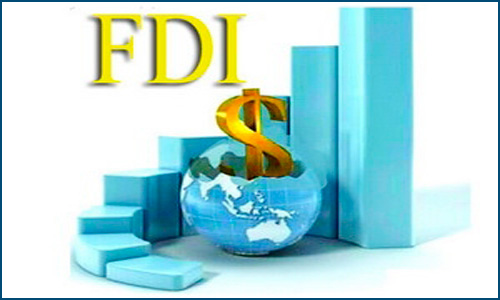- March 11, 2015
- Posted by: Wevio
- Category: Market Research & Analysis, Wevio Blog

What is FDI?
Foreign direct investment (FDI) is a controlling ownership in a business enterprise in one country by an entity based in another country. Broadly, foreign direct investment includes “mergers and acquisitions, building new facilities, reinvesting profits earned from overseas operations and intra company loans”. In a narrow sense, foreign direct investment refers just to building new facilities. FDI is also a countable measure when calculating country GDP Value. GDP equation Y=C+I+G+(X-M)[Consumption + gross Investment + Government spending +(exports – imports)], Where I is domestic investment plus foreign investment 
Type of FDI:
Horizontal: A firm duplicates its home country-based activities at the same value chain stage in a host country through FDI. Platform: FDI Foreign direct investment from a source country into a destination country for the purpose of exporting to a third country. Vertical: A firm through FDI moves upstream or downstream in different value chains i.e., when firms perform value-adding activities stage by stage in a vertical fashion in a host country.
How Foreign direct investment can be achieved?
- By setting up a subsidiary or associate company in the foreign country.
- By acquiring shares of an overseas company
- Through a merger or joint venture.
Major FDI incentives
These are list of major Foreign direct investment incentives may happen the following forms:
- Low corporate tax and individual income tax rates
- Tax holidays
- Other types of tax concessions
- Preferential tariffs
- Special economic zones
- EPZ – Export Processing Zones
- Bonded warehouses
- Maquiladoras
- Investment financial subsidies
- Free land or land subsidies
- Relocation & Expatriation
- Infrastructure Subsidies
- R&D support
- Derogation from regulations (usually for very large projects)
Advantages of FDI:
For hosting country:
- Economic growth due to the inflow of capital and increased tax revenues for the host country
- Increases in GDP per capita
- New infrastructure that help other industries & projects to boost development
- Improve corporate governance standards
- Employment opportunities
For Sourcing Company:
- Access to markets
- Access to resources
- Reduces cost of production
Disadvantages of FDI:
- Unstable economic conditions
- Unstable political and legal system
FDI vs Country:
China- FDI in China, also known as RFDI (renminbi foreign direct investment), has increased considerably in the last decade, reaching $59.1 billion in the first six months of 2012, making China the largest recipient of foreign direct investment and topping the United States which had $57.4 billion of FDI.[11] In 2013 the FDI flow into China was $64.1 billion India- India disallowed overseas corporate bodies (OCB) to invest in India. Current FDI in aviation and insurance sectors is limited to a maximum of 49%. According to United Nations Conference on Trade and Development, India as the second most important FDI destination (after China) for transnational corporations during 2010–2012. As per the data, the sectors that attracted higher inflows were services, telecommunication, construction activities and computer software and hardware. Mauritius, Singapore, US and UK were among the leading sources of FDI.
Nine from 10 largest foreign companies investing in India
- TMI Mauritius Ltd. ->Rs 7294 crore/$1600 million
- Cairn UK Holding -> Rs6663 crores/$1492 million
- Oracle Global (Mauritius) Ltd. -> Rs 4805 crore/$1083 million
- Mauritius Debt Management Ltd.-> Rs 3800 crore/$956 million
- Vodafone Mauritius Ltd. – Rs 3268 crore/$801 million
- Etisalat Mauritius Ltd. – Rs 3228 crore
- CMP Asia Ltd. – Rs 2638.25 crore/$653.74 million
- Oracle Global Mauritius Ltd. – Rs 2578.88 crore / $563.94 million
- Merrill Lynch(Mauritius) Ltd. – Rs 2230.02 crore / $483.55 million
- Name of the company not given (but the Indian company which got the FDI is Dhabol Power company Ltd.)
United States- Fundamentally “open economy” and low barriers to FDI.
U.S. FDI totaled $194 billion in 2010. 84% of FDI in the United States in 2010 came from or through eight countries: Switzerland, the United Kingdom, Japan, France, Germany, Luxembourg, the Netherlands, and Canada.
Canada- Foreign direct investment accounted for CAD $634 billion in 2012.
United Kingdom- The UK has a very free market economy and is open to foreign investment.
Russia- enact policies for attractive FDI on particular industries, for example, fossil fuel, gas, woods, transportation, food reprocessing, etc.
